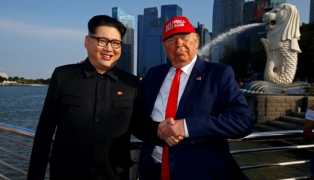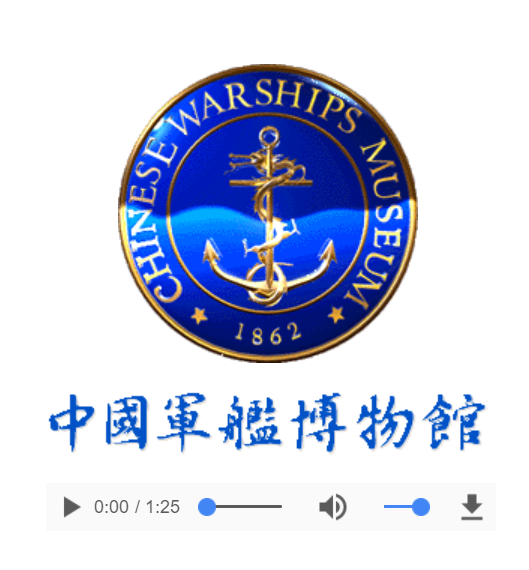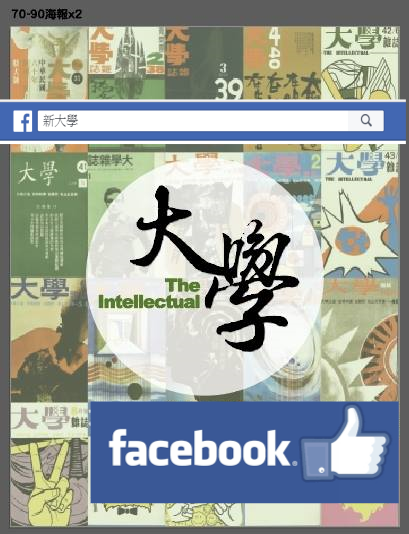♦ 本文內容轉載自: 中美論壇專刊 US-China Forum (Chinese) ♦
“Nearly five hours of unprecedented and surreal talks between US President Donald Trump and North Korea's Kim Jong Un culminated on Tuesday (June 12th in Singapore) with fulsome declarations of a new friendship but just vague pledge of nuclear disarmament.”, reported by Kevin Liptak on CNN website in an article entitled, ‘Trump's North Korean gamble ends with 'special bond' with Kim’. Despite of being a historical event where the two leaders extended their handshake giving the world-wide news reporters an opportunity to capture an image of openly friendly gesture, the real accomplishment of the meeting did not go beyond what Kim had said in April nor added any substance over Trump’s praise of Kim being a talented young man. Now the Korea Peninsula issue is in the shadow; the world is preoccupied by the trade wars, President Trump has just put it in high-gear.
But the peace in Korea Peninsula is a very serious matter; it is not only a concern of the Korean people but also on the minds of Chinese and Japanese, neighbors of Koreans, for decades. The essence of the problem is not limited to denuclearization by North Korea (NK) or to stopping military exercises and pulling out troops by the U.S. The core issue is whether or not there will be a real peace treaty signed by the two Koreas (NK & SK) and the U.S. witnessed by their neighboring nations, China, Japan and Russia. For the Korea Peninsula region, the ultimate goal is to have a genuine peace treaty. Of course, the essence of a peace treaty will require denuclearization, removal of foreign troops and final reunification of two Koreas or at least a friendly coexistence of two Koreas under a peace treaty. The history of West and East Germany and the present day united Germany surely serves as a good lesson and model for the Korea Peninsula problem.
Why isn’t a peace treaty signed in 1954 when the Korean War was halted by the leaders then, Kim Il Sung, NK, Syngman Rhee, SK and Dwight Eisenhower, the U.S.? At that time, there was no nuclear threat issue. The military strength of the U.S. was overwhelming. It was almost certain that the U.S. could get a peace treaty between the two Koreas if she wanted to. For over six decades, NK has consistently proposed peace agreement to replace the armistice agreement wishing to end the abnormal situation - military tension - to a normal relation - Peace. D. shin, an academician, in his article, North Korea’s Perspectives in Its Argument for A Peace Treaty, published in Asian Affairs, 48:3, 510-528, online on September 14, 2017 (https://doi.org/10.1080/03068374.2017.1361244), argued to support the above NK position by “making a detailed examination of North Korean texts to fully understand its perspective, rather than a reliance on conjecture about its intentions and policy objectives”.
Many experts argue that the NK proposal for a peace treaty has always been a strategic deception. Shin’s study on the NK’s proposed languages on peace treaty and various statements over the years was to find what the definition of peace in NK’s perspective is and to justify putting peace treaty on the negotiation table to resolve the Korea Peninsula issue. In the past, I have discussed that it is necessary to accept the idea of reunification of the two Koreas and to achieve a true peace treaty in order to resolve the Korea Peninsula problem. I am glad to see that Shin’s findings are consistent with my thought.
It is worthwhile to summarize Shin’s conclusions below in a few concise statements to appreciate NK’s perspective on the peace issue, perhaps helpful in solving the NK dilemma:
1. Peace means ending of the armistice status - the current situation of military tension in Korea Peninsula and isolation of NK from the world -, both are abnormal.
2. The Armistice Agreement does (did) not define the ‘final peace’. Reunification is the ultimate goal.
3. Armistice is the anti-thesis of peace. The current armistice did not reflect or honor the agreement. (“For example, the commander in chief of the United Nations Command (UNC) was a signatory of the Armistice Agreement and the UNC was dissolved by the 30th Session of the UN General Assembly held in 1975 but the Armistice Agreement did not reflect this changed reality. In addition, NK claimed that the US violated the Armistice Agreement by appointing a SK general as a senior member of the Military Armistice Commission (MAC) in 1991and by withdrawing the Neutral Nations Supervisory Commission (NNSC).”)
4. The assignment of the U.S. military and shipments of large quantity of military equipment to SK by the U.S. are obstacles to peace. (NK realizes the nuclear weapon she developed is a major obstacle to peace.)
NK essentially wants to have a peace guarantee and certain peace mechanisms leading to peace. Peace treaty is the necessary step to reach a genuine peace with reunification or a friendly coexistence of two Koreas as the final goal. Though the NK and SK governments have not focused on the term ‘reunification’ frequently due to political consideration but the people of Korea do equate that to the ultimate peace. International problems are often solved by intelligent world leaders; skidding back to the 1954 Geneva conference on Korea may elucidate this point.
Recently, I had the fortune to have met a giant journalist, Mr. Seymour Topping, former NY Times Managing Editor and Administrator of Pulitzer Prizes, and had begun to read his books. In one of his books published in 1971, coauthored with Tillman Durdin and James Reston, The New York Times Report from Red China, I came across many interesting chapters reporting about China, political observations, China’s transformation, Nixon’s historical China visit, as well as interview with Premier Chou En-Lai. One particular chapter contributed by Audrey Ronning (Mrs. Seymour Topping, a photojournalist and Prose Award Winner, whom I had the honor to be acquainted with), entitled, Premier Reminisces with an ‘Old Friend’, had a passage very relevant to our discussion here. Premier Chou En-Lai met with Chester Ronning, Audrey’s father, Charge’ d’affairs of the Canadian Embassy and their conversation turned to the 1954 Geneva Conference on Korea, where Mr. Chou headed the Chinese delegation and Mr. Ronning was the acting head of the Canadian delegation.
Chou was known to push for the peace treaty for the Korean Peninsula. In Audrey Ronning’s chapter, she wrote: “It was recalled how Mr. Chou had opposed the permanent closing of the conference when it became deadlocked. Instead, he proposed that it be adjourned sine die, to be recalled when the time seemed more appropriate to replace the Korean armistice of July, 1953, with a peace treaty.” “”if we had accepted your proposal at the Korean conference,” Mr. Ronning said, “we could have had a peace treaty.”” This passage strokes me hard, indeed, Mr. Chou was a great statesman and he could see clear and far. In 1954, Gen. Walter Bedell Smith, head of the U.S. delegate at the Geneva conference and President Dwight Eisenhower were too much influenced by the US military to see the political value of a peace treaty versus an armistice. If a proper peace treaty was established in 1954, history would have been rewritten, no nuclear threat from Korea today.
Sixty four years later, the Korea Peninsula problem falls on the lap of President Trump, a self-claimed non-politician and expert on negotiation. Having a summit meeting with NK leader Kim Jung-En was Trump’s bold move but following through to achieve a genuine peace in Korea Peninsula benefitting the world requires Mr. Trump to think and act like a great statesman. We Americans hope that President Trump will reflect on the history and absorb the wisdom of many great leaders before him and make a genuine peace deal for Korea Peninsula in their second summit.
Ifay Chang. Ph.D. Author and columnist, www.us-chinaforum.org and .com, Producer/Host, ScrammblewordGames (on Youtube) Weekly TV Show, Trustee, Somers Central School District.
原文 | 中美論壇 US-China Forum (Chinese)
♦ 專文屬作者個人意見,文責歸屬作者,本報提供意見交流平台,不代








